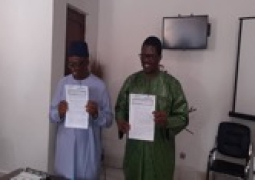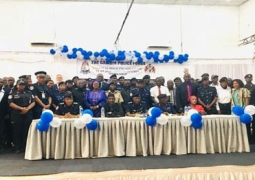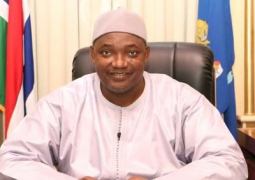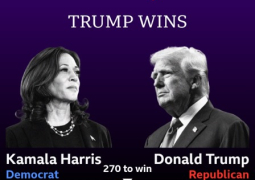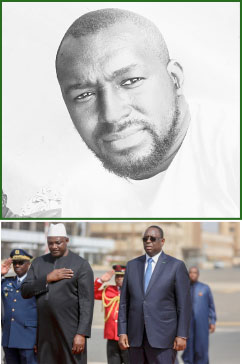
Forty years of bloodshed. Forty years of negotiations. Forty years, and no political solution. Yet, the rebel forces had never launched an attack on sovereign territory of The Gambia. Never had we feel in anyway more threatened for our national stability, security and overall peace. Yet, last week, MFDC rebels came in, mounted check-points at Gambian villages following exchange fires with bilateral Senegalese forces on our territory, thanks to an attack allegedly provoked by a pursuit of a truck trafficking timber logs across the border from Southern Senegal.
What happened this week had been long time coming. The signs were glaring us all in the faces. Yet, our government did nothing. It chose to keep silent over the activities of bilateral forces of Senegal within Gambian territory. The loss of Senegalese lives in the clash, unfortunate, are on no one other than President Macky Sall – the one time democratic champion of SeneGambia and the West Africa, now metamorphosed into a new missionary, an economic type, a political type and an ethnic one; attempting to accomplish what nemesis and goliath could have not dreamed about in The Gambia, Senegal and Guinea Bissau. Lest we forget, it is similar political ambitions of uniting tribes and establishing pharaonic kingdom across same countries that bloated Jammeh into a political maniac. A super charlatan who thought of himself as invincible…. Eventually contributed greatly to his ruin in power the way he did.
For Jammeh, such was his personal project, with no lieutenants except his Generals in the Gambia Army, his agents in the jungles of Bissau and Cassamance, and the Junglers visiting treacherous fear and waste to human lives in The Gambia. But for Macky, he has as his general, the prodigal, “spoilt” little brother in Banjul, who in so many ways lack guts to say nay to anything coming from Dakar into Banjul. In the process, Adama Barrow had compromised the hard-won, sovereign, independence that our forefathers fought so hard to win from both British and Portuguese colonialists and passed on to us. In Bissau, a street-naming other brother in the person of Umaro Sissoco Embaló since February 2020, became another lieutenant, turning the hard-worn, bloody sacrifice of so many past Generals of Bissau into another constituency for Macky’s ambitious projects. What many did not know is that Cassamace had been once under Portuguese rule, just as Gambia, unlike Dakar that had ever been so French than France itself. It begs the question, whose war is Senegal fighting?
Throughout the four decades of the rebel wars, the humanitarian catastrophe and insecurity impacts on The Gambia were tremendous. But for countries that were bound by destiny as one and three (Guinea Bissau is at the center too), this crisis is something that cannot be ignored. Under the Yahya Jammeh regime, I had covered several peace talks between MFDC and Senegalese government here, in Banjul, mostly at the Atlantic Hotel, led by Foreign Minister Momodu Lamin Sedat Jobe. In the same vein, Gambian border communities had played host to thousands of fleeing civilians from the frequent clashes between the MFDC forces and Senegalese armed forces. Mostly, fatalities emerged from both sides. Sons, husbands, uncles and brothers were always returned to their loved ones in coffins. Many instances, women and children had body parts thrown in the air when they step on unsuspecting buried mines, or found grenades in the farmlands, rice fields or backyard bushes. Yet, Gambia’s role as a good neighbor, had always been to bring peace. To help bringing both sides to the table. To stave-off the armed conflict and use diplomacy and dialogue as means to lasting solution of the conflict.
From the eras of Presidents Jawara and Senghore to Joof, the policy of The Gambia had always been consistent with the above. Even when Jammeh came in, he had weighed in on the Cassamance conflict, negotiated the release and exchange of several prisoners of war between the two sides, including those held in The Gambia prisons for illegal activities within our borders for which they were nabbed by Gambian security forces. Those measures intensified well under former President Abdoulaye Wade, whose aggressive approach to bringing lasting peace yielded in both causing more harm and civilian displacement as refugees flooded The Gambia and Guinea Bissau than providing a lasting solution to the conflict.
A development Solution to the Conflict
To President Sall’s credit, Southern Senegalese population see him as more proactive in bringing solution through the rolling out of series of development projects, from infrastructure to food security, health care and education, creation of jobs for the unemployed and vulnerable youths – until he began making a policy shift of finding the solution by using The Gambia as a base for bilateral forces to monitor borders, gather intelligence and among others, counter the trafficking of timber, drugs and other goods across the border with The Gambia. Of all places, the Senegalese forces use Foni, home region of ex-dictator, the geo-ethnic home of the Jola community, whose brethren in Cassamance led the forty years rebellion and border with southern Senegal as their military base.
In a publication titled China’s Hongmu Consumption Boom by an international non-profit organization Forest Trends, an unprecedented rate of surges in Chinese furniture manufacturers’ imports of several species of rosewood, collectively known as hongmu have been exposed. This was between 2010 and 2014, and relying on China’s customs data. This trade had been blamed for the fueling of illegal harvesting of rosewood in the last remaining forests of Southeast Asia and, to this day, increasingly in Africa. The value of China’s imports of rosewood from West Africa also soared from US$12,000 to US$180 million at the same time. It was as well established that none of this timber came from Senegal; rather, it all came through The Gambia, with an official timber exporting company operated by no other than Yahya Jammeh and his cabal. This trade made The Gambia, a country with no rose woods, one of the largest West African exporters to China.
“As the largest global consumer of rosewood, China has seen the volume of its imports increase 1,250 per cent since year 2000. From 2013 to 2014 alone, the value of these imported rosewood nearly doubled, reaching US$2.6 billion,” the study published by Forest Trends, found out in December 2015, a year before Jammeh’s famous defeat at polls in The Gambia, leading to his exile in Equatorial Guinea and installing of Adama Barrow in The Gambia with support of ECOWAS. For obvious reasons, Senegal provided almost half the troops used in a multinational West Africa enforcement force, also insisting on leading the onslaught against the Dakar-opponent Banjul dictator.
In 2015, President Macky Sall ordered the army to start patrolling the border area in a bid to clamp down on smugglers. Soon afterwards, rosewood was added to a list of species for enhanced international regulation by the Secretariat of the Convention on International Trade in Endangered Species (CITES). Studies also found that Senegal loses 40, 000 hectares of forest, especially in the Casamance region bordering with The Gambia.
Diplomatic maneuvers by Macky Sall
With Yahya Jammeh gone and the role that Dakar played in the political impasse between 2016 and 2017, President Sall saw a unique opportunity for Senegal to re-engage Banjul on a more formal, “brotherly” cooperation – not that it never existed; rather, it was marred by suspicions especially after the failed attempt at confederation of the two states following the 1981 coup attempt against President Jawara, where Dakar played another key role in installing him back in Banjul. In all instances of intervention, other states like Britain and Nigeria made requests to lead intervention but were downplayed by Senegal, insisting neighborliness gave them better position at such.
In March 2018, President Macky applied a new approach to Senegalo-Gambia bilateral relation by pushing for a Presidential Council Meeting, where contentious issues between two countries are tabled for discussion. It was agreed to be convened twice each year and in the maiden edition hosted in Banjul, Dakar top technocrats, specialists and political cabal descended upon Banjul for days, to renegotiate the future of the two countries through a diplomatic approach. However, since then, a second meeting only came in 2020, after repeated border closures and transport union imposed ban on Gambia’s commercial vehicles entering Senegal forced the two sides to negotiation table in Dakar.
In March 2017, a month after the inauguration of President Barrow in Banjul, he made his official visit to Dakar, where a joint communique was signed, committing the two countries to good neighborliness and Barrow announcing the lifting of all restrictions on industrial and artisanal foreign fishing vessels in The Gambia. This includes the ban on cross-border trade on fish and fishery products.
The fishing agreement was among six others penned in Banjul that day in 2018. The agreements include assistance to detain and transfer of persons sentenced; road transportation; health and animal production; cultural cooperation; sports; and higher education, research, science and technology.
In 2018, the two Presidents also agreed on defence and security pacts among several others. As part of the agreements, the two countries agreed to set up “joint border patrols” – just no Gambian security or defence forces were operating on Senegalese soil. Instead,a contingent of Senegalese armed forces were deployed to Foni, The Gambia, in the context of this agreement, with no proper explanation to the population. It was disguised as a part of ECOWAS military force sent on peace keeping in Banjul, when it actual fact, the mission was to curb cross border trade, gathering intelligence on The Gambia and rebel forces in Cassamance and launching cross border attacks, pursuits of traffickers from Gambian territory. Several incidences of violence were reported between border villages and the forces who see these sometime as “invasion” due to extraordinary, unexplained activities which sometimes led to discharge of live ammunition by Senegalese forces on Gambian soil.
So many saw the agreements as mainly beneficial to Senegalese interests in The Gambia, which our President signed without subjecting to parliamentary and national debate and ownership. President Sall’s pundits even applauded his diplomatic successes in dealing with the Gambia problem for Senegal, succeeding where his former predecessor presidents could not, including the breakthrough with the Trans-Gambia Bridge.
In conclusion, I would like to emphasize that the business of safeguarding the sovereign rights of this country is not just the responsibility of the President and his government. It is everyone’s business. While pet-boy Adama Barrow continues to say yes to every wish handed to him from Dakar, we will hold him and bad-boy Macky Sall responsible for each loss of lives that would occur in coming days, weeks and months in this old war between West and Southern Senegal. It has never been our war and our country must never be used as base for launching military actions against the rebels. As our country still struggles to heal from the dark history of Jammeh’s tyranny, sending our soldiers to war in this war and bringing them in body bags, or the resulting civilian casualties that may emerge from it would be the biggest mistake that this government can make after everything else...
In ignoring this advice, the ensuing instability and loss of lives will be the responsibility of two Presidents of Dakar and Banjul. Until then, I strongly recommend the withdrawal of bilateral forces from Foni, and a rethink over using our territory to launch attacks against rebels in Cassamance. This is quite necessary in order to keep our brothers and sisters safe from the cross fire when, not if, the guns started blasting.


